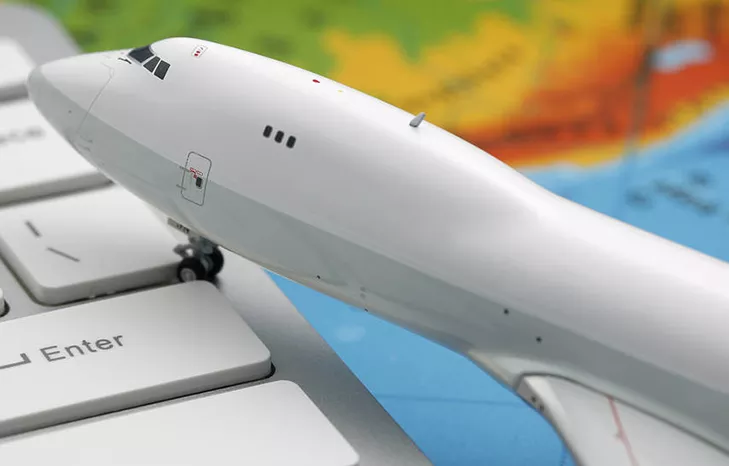Planning a trip with American Airlines and aiming to secure the best fare? Understanding airline pricing strategies and booking at the optimal time can significantly impact your travel budget. This guide delves into the factors influencing ticket prices and offers actionable insights to help you navigate the complexities of airfare booking.
Understanding Airline Pricing Dynamics
Airlines utilize dynamic pricing models, adjusting fares based on various factors such as demand, competition, time to departure, and booking patterns. Gaining insight into these elements can empower you to make informed decisions and potentially lower your travel expenses.
The Influence of Demand and Seasonality
Travel demand is not constant; it ebbs and flows throughout the year, influenced by seasons, holidays, and special events. Recognizing these patterns is crucial for timing your ticket purchase effectively.
Peak Seasons
Peak travel seasons, such as summer, major holidays, and spring break, witness a surge in demand. During these times, fares are typically higher due to increased competition for limited seats. For instance, traveling during the winter holidays or summer months often results in elevated airfare prices.
Off-Peak Seasons
Conversely, off-peak periods, like late winter or early fall, generally offer more favorable pricing. Traveling during these times can lead to more affordable fares and a more relaxed travel experience. For example, August is often cited as one of the cheapest months to fly, as demand decreases after the summer peak.
Optimal Booking Windows
Timing your ticket purchase is crucial in securing favorable fares. While there’s no one-size-fits-all answer, certain timeframes have been identified as more advantageous than others.
Domestic Flights
For domestic travel within the United States, studies suggest that booking between 63 to 72 days (approximately 2 to 3 months) before your intended departure date can lead to significant savings. This period allows you to capitalize on early-bird discounts before prices escalate as the travel date approaches.
International Flights
When planning international travel, it’s advisable to book between 43 to 54 days (about 1.5 to 2 months) in advance. This window strikes a balance between fare availability and pricing, helping you secure a good deal without the risk of last-minute price hikes.
When To Buy American Airlines Tickets?
While specific days may not guarantee the lowest fares, certain patterns have emerged that can guide your booking strategy.
Midweek Bookings
Booking flights on Tuesdays and Wednesdays has been associated with lower fares. Airlines often release fare discounts on Monday evenings, and by Tuesday afternoon, competitors adjust their prices to match, resulting in more competitive pricing.
Weekend Bookings
Some studies suggest that booking flights on Sundays can lead to savings, with domestic fares being approximately 6% cheaper compared to bookings made on Fridays. However, the difference may not be substantial, and it’s essential to compare fares across multiple days.
Flexibility with Travel Dates
Flexibility can be a powerful tool in finding affordable fares. Adjusting your travel dates by a few days can result in significant savings.
Flying on Less Popular Days
Flying on Tuesdays, Wednesdays, or Saturdays often yields lower fares due to reduced demand. Midweek flights, in particular, tend to be more affordable, as fewer travelers opt for these days.
Avoiding Peak Travel Times
Steering clear of peak travel periods, such as major holidays and school vacation times, can help you find more favorable pricing. For example, traveling during the shoulder seasons—just before or after peak periods—can offer a sweet spot for affordable fares.
Utilizing Special Sales Events
Airlines periodically offer promotions that can significantly reduce ticket prices. Being aware of these events and planning your purchases accordingly can lead to substantial savings.
Travel Sales Events
Events like Travel Tuesday, occurring on the first Tuesday after Thanksgiving, often feature significant discounts. During this event, airlines release substantial fare reductions, with some fares discounted by up to 60%.
Leveraging Price Alerts and Comparison Tools
In the digital age, numerous tools can assist travelers in monitoring fare fluctuations and identifying the best times to purchase tickets.
Price Comparison Websites
Utilizing platforms like Google Flights or Skyscanner allows you to compare fares across multiple airlines, including American Airlines. These tools provide flexible date searches, enabling you to identify the most cost-effective travel dates.
Fare Alerts
Setting up fare alerts notifies you when prices drop for your desired route, allowing you to book at the most opportune times. These alerts can be customized based on your budget and travel preferences.
Considering Alternative Airports and Routes
Exploring different airports and flight routes can uncover additional savings opportunities.
Alternative Airports
Flying into or out of alternative airports near your destination can result in lower fares. For instance, choosing a nearby secondary airport instead of a major hub can reduce ticket prices.
Connecting Flights
Opting for flights with layovers, rather than direct flights, can also lead to cost savings. While this may increase travel time, the reduced fare may make it a worthwhile trade-off.
Staying Informed on Market Trends
Keeping abreast of industry trends and forecasts can inform your booking decisions.
Monitoring Industry Reports
Regularly reviewing reports from reputable sources, such as the U.S. Bureau of Transportation Statistics or industry news outlets, provides insights into fare trends and projections. For example, recent analyses indicate that airfares could increase by nearly 20% in the coming months due to rising demand and limited aircraft production.
Conclusion
Securing the best fares with American Airlines involves a multifaceted approach that includes strategic booking, flexibility with travel dates, utilization of special promotions, and staying informed about industry trends. By understanding the factors that influence airfare pricing and actively monitoring fare changes, travelers can enhance their chances of finding favorable deals. Remember, while certain patterns and strategies can guide your decisions, airfare pricing remains dynamic and subject to various influences. Therefore, it’s prudent to combine these insights with vigilant monitoring and flexibility to optimize your travel planning.

